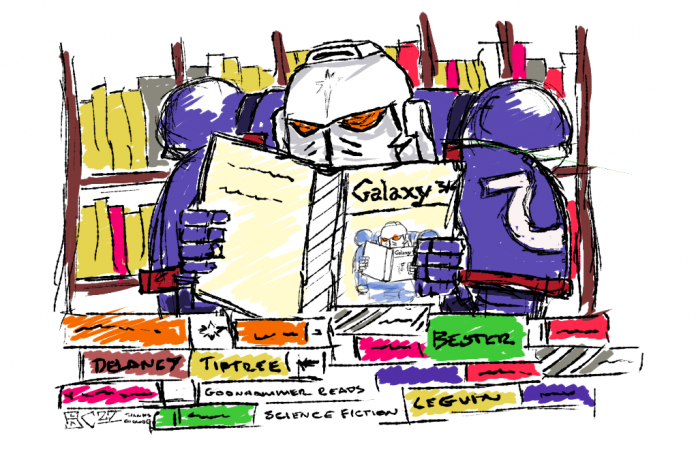We love Science Fiction at Goonhammer. This might not be a surprise – the site is half named after some, one of our founders has a (possibly) evil robot doppelganger, you’re reading this over the impossibly science fiction premise of “the internet”. Chances are, if you’re on this site, you’re a big fan of one, or more, science fiction franchises as well. There’s even a very good possibility that you’re wearing, holding, looking at, in the same room as, listening to or thinking about buying some science fiction stuff right now.
Sci-fi has risen over the last few decades to be so completely ubiquitous that in one form or another it’s arguably the dominant expression of our rapidly homogenising world culture. Between Star Wars, Star Trek, Marvel, and their less dominating competitors, including Games Workshop in our own little niche of wargaming, we have never been more saturated with SF-ish media. If the extended adventures of the Enterprise, the inexhaustible contents of Stan Lee’s imagination, the spin offs of Lucas’s great fantasy movie (a kid and a wizard walk into a bar…) and the second most realistic British dystopia are your SF and you love them, awesome! Welcome! We’re going to talk about that, and much much more.
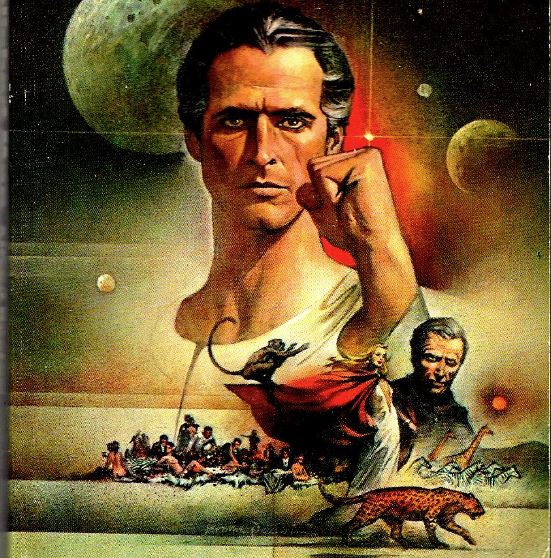
Here on Goonhammer, probably just like you, we eat up visions produced in British, American and Japanese film, TV and comic contexts in the 1960s-1980s. But Science Fiction is huger, and cooler, and weirder and just flat out better than that. The point of this new series is to read some of the absolute best SF out there, to boldly go where you might not have been before!
What is Sci-fi anyway?
You probably know Sci-fi when you see it, right? It might be in space, or set in a future, or a post apocalyptic version of our world. It lives on carefully guarded bookshelves in adult and young adult sections, almost as if it might escape and contaminate the “serious” fiction. It’s sneered at occasionally by “literary” authors, despite the very best SF being some of the most moving and significant literature humans have ever written. It’s sometimes tie-in fiction, or sold in genres – apocalyptic, dystopian, space opera, mil-SF. It could have little green men in, or men from another dimension, or better than both, no bloody men at all.
Whatever it is, it’s literature that works with the not-real. The imagined world, whatever it could be – a future or an apocalypse, massive or tiny, personal – is not ours, but decidedly and deliberately changed. It isn’t, always, or even usually, about science and technology. It’s about people (even when the people are aliens, or computers, or mushrooms), how they interact and the relationships they form with each other and their world.
It’s also, and importantly, something that uses these alternate, imagined realities, to say something about today. Not satire, or strict commentary – though sometimes both – but really, really good Scifi uses that not-real as a mirror to the real. We learn, or interrogate, or reflect, on our reality by reading the imagined one.
Fantastical, speculative, reflective. That’s Science Fiction to me.
Goonhammer reads Sci-fi
What does this all mean for Goonhammer, anyway? It means we’re going to get talking and reading amazing SF. Over the next couple of articles, we’ll talk about it – what it is, how it’s developed, the authors you’ve probably read and the ones you might have missed. Not a tier list, and not a book club – just some solid recommendations of some god-damned amazing books.
To do that, and because despite having read a lot of SF, I haven’t read literally all of it (yet! if only there were more hours in the day), I’m going to cheat a bit and use three of the best collections out there.
Gollancz SF Masterworks
THE collection – 188 books collecting outright and world renowned classics, books unjustly long out of print, back catalogue works from authors you know and absolute classics from those you don’t. Running since 1999, the full collection includes works from the 19th century, the classic SF eras throughout the 20th and, increasingly, new classics from the last 20 years. They have distinct yellow spines, and look generally gorgeous. With a very, very, few exceptions, you literally cannot go wrong picking one up.
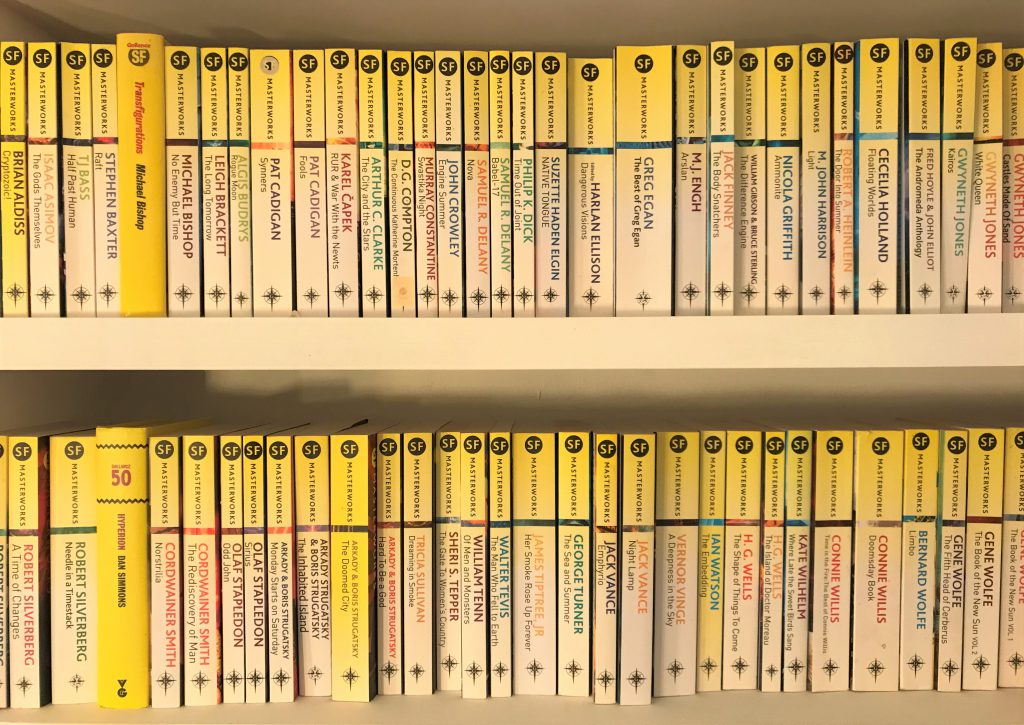
The Women’s Press Science Fiction
The one collection of the three that isn’t in publication – the Women’s Press is, sadly, now defunct. But what an effort this was – a traditionally male field, to the extent that many of the great writers are still known only under their male pseudonyms, the Women’s Press determined to address this by collecting women’s SF. Mostly outright and deliberately feminist, often lesbian, nearly all completely unjustly forgotten – it is not just a political statement, but a collection that includes a number of the best ever written, ones that mysteriously don’t appear in other “best of” lists. One of the authors featured often, Jo Russ, definitely identified why.
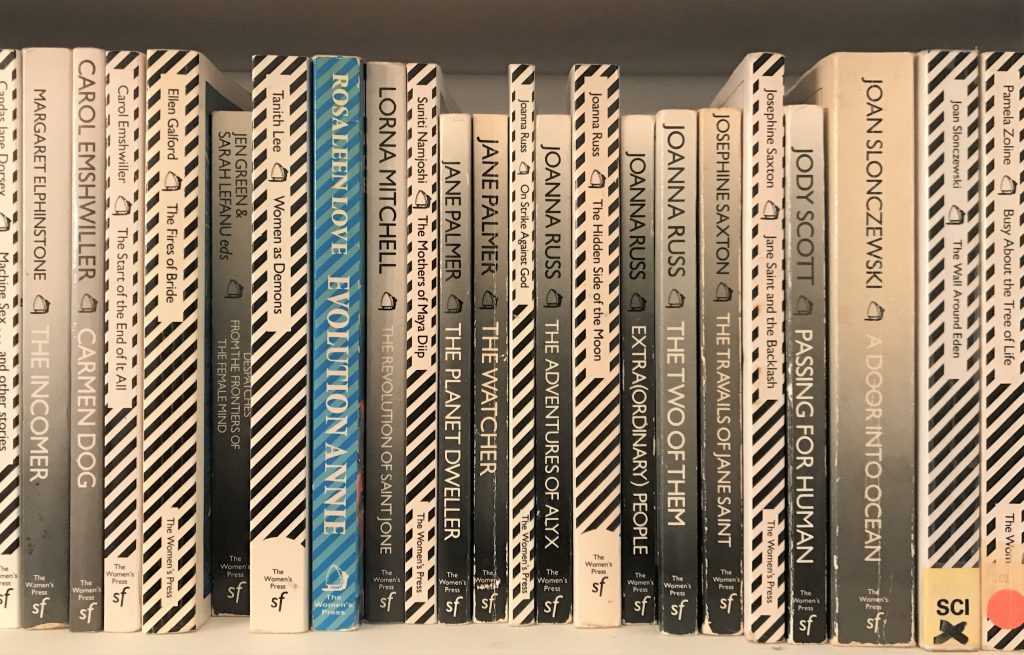
Penguin Science Fiction
20 beautiful, modernist and just damn good books collected and released by Penguin, I think largely because they wanted to put a really pretty set of books together. There’s old classics here and forgotten legends, with a much more international focus than the SF Masterworks, a real world-scouring effort to make a definitive “you probably haven’t read this” list. There’s no picture for this one though – I have them all in the most SF way possible, on my e-reader!
Three Recommends
This week to keep it simple, I’ll recommend three books that answer the big question – what is Science Fiction?
Three classics from three different eras of SF to make a good start to the series. These would convince you of the fantastic, speculative, reflective and above all completely awesome nature of SF, even if you’d never read anything other than the driest, most grounded in reality fiction ever written. Big claim – but they’re great books.
The Demolished Man (1953), Alfred Bester
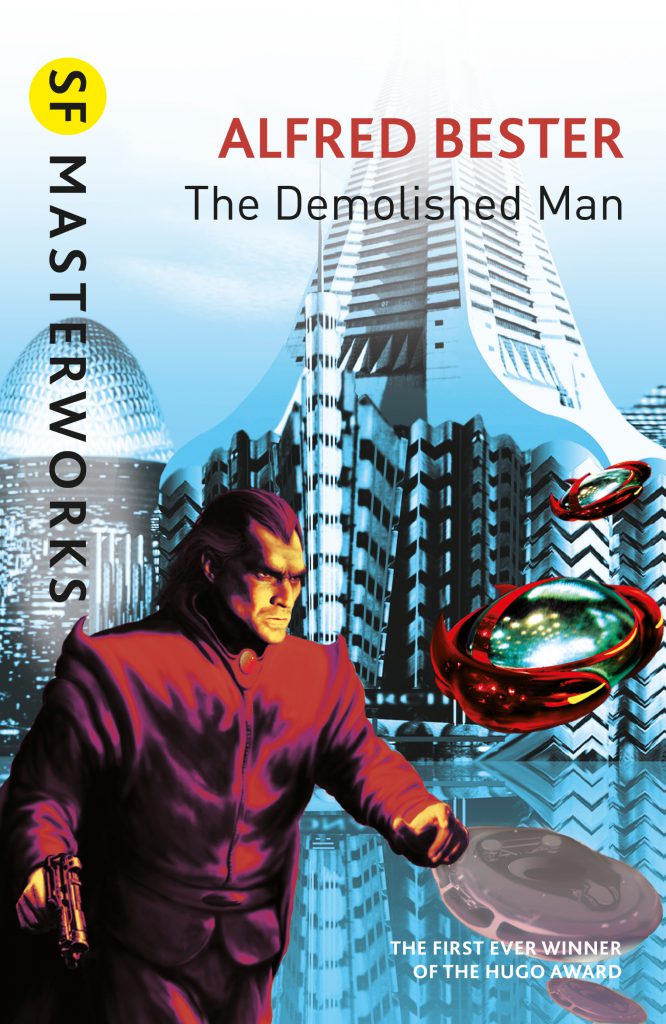
Ben Reich is a man who wants to commit a murder. His company is threatened with bankruptcy, but all his legal options are exhausted – only the death of old rival D’Courtney could possibly solve his issues. But how do you get away with murder in a world filled with psychic policemen?
A murderous revenge story, a psychic detective story and an exploration of telepathy all rolled into one, told at a breakneck pace and littered with fantastic worldbuilding and classic SF tropes. Bester is one of the absolute greats of the “Golden Age” of SF, and Demolished Man shows his characteristic style to fantastic effect. It’s a fantastic example of SF being out there and pushing boundaries, but still, at heart, being about people – it’s a character study of Reich and his Policeman nemesis, and how telepathy effects social, economic and private life. Bester always really believes his setups, and the idea of telepathy is fully grounded and anchored in the world.
It’s a classic SF page turner with a breathless pace that can only be matched by another Bester book that we’ll cover another time. This is SF as fantastical, and fantastic, because when Bester is good, he’s…. well. The Best.
Kindred (1979), Octavia Butler
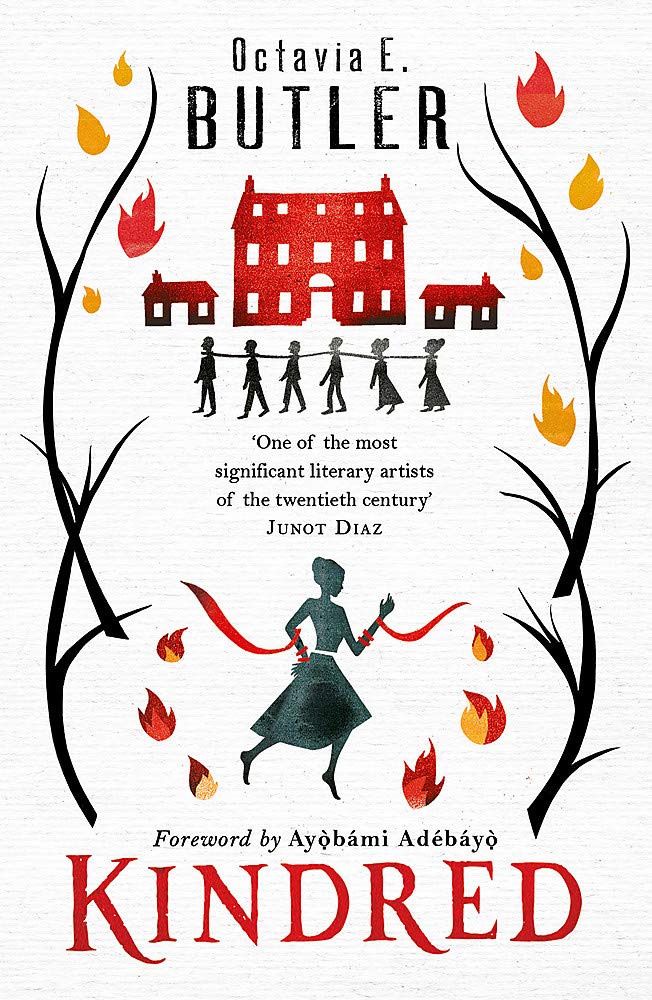
Dana and her husband Kevin are thrown backwards through time to the antebellum South, to encounter her ancestors: Alice, a black freedwoman and Rufus Weylin, a plantation owner. Drawn through into the past by her connection to both, Dana tries to keep herself, and her ancestors alive under the most brutal system imaginable.
If SF is supposed to say something about us and our times, Butler says it best, and in Kindred says it strongest. Kindred is Science fiction about race, gender, power, and wealth, family and ancestry, of love and marriage and the intersections between all of them. Butler – and Dana – are Black women writing and experiencing the world as Black women, and Kindred is rooted in African American history and experience. It’s not my world, or my ancestry, and I could never hope to understand the trauma that rings through this history into the world today, but SF can allow us all to reflect on it a little better. Here’s the thing as well – ALL SF is about gender, and race, and family and love and economics – pretending that it isn’t is rank cowardice. Kindred doesn’t let you forget it.
As if it’s content wasn’t enough, Kindred is fantastically well written, and an enduring classic for a very good reason – it is impeccably readable. Though there’s people out there who’d say it isn’t SF, thats usually because some people hate acknowledging that they’ve read and enjoyed “genre” fiction. Embrace it – good SF is always political.
Tau Zero (1970), Poul Anderson
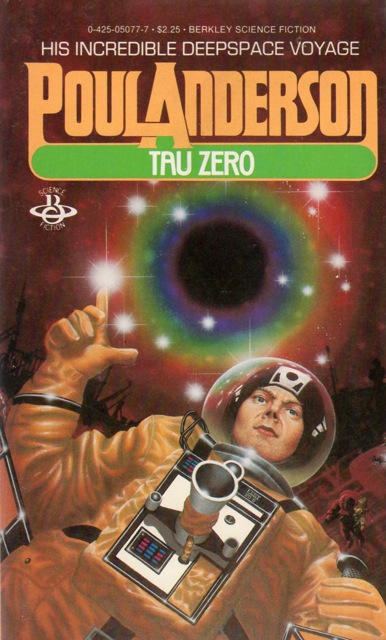
The starship Leonora Christine journeys to Beta Virginis to found a new colony, sped on their way by a ramjet engine that can power them all the way up to close to the big c. In their time, the journey will last five years, but many decades will have passed on Earth. A year in, though, and the drive is damaged – the ship can only accelerate through a Galaxy that grows vastly older with every passing moment.
Classic, perfect and impossibly influential on Hard SF – where technology possibly only just beyond our reach drives an otherwise grounded plot. Here, the core idea of time dilation is mercilessly applied to the crew of the Leonora, and Anderson spins this out to allow discussion of nebulae, black holes, accretion disks, relativity and the end of the universe while his characters struggle to cope with their isolation in both space and time.
It doesn’t hurt that Anderson was an excellent writer and here, even the technological and scientific explanations and slightly stilted dialogue don’t drag. Messy social and emotional issues are secondary to the “objectivity” of Science and Technology in hard SF. When done well, as it is here, it’s fascinating, thrilling and interesting.
—-
Next time: Exploring from the Black Library – Military Science Fiction
Have any questions or feedback? Have a great idea for an area of SF to look at? Got a book recommendation, or a favourite? Drop us a note in the comments below or email us at contact@goonhammer.com.
